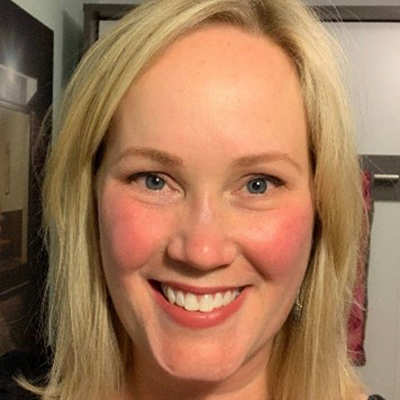December 3rd is International Day of Persons with Disabilities.
First proclaimed by the UN in 1992, it’s an annual observance to recognize the unique contributions of people with invisible and visible disabilities, and raise awareness about disability issues.
This year’s theme is “Fighting for rights in the post-COVID era.” HRPA understands the importance of focusing on the challenges and barriers that people with disabilities face in our workplaces and communities, especially during this time.
While the pandemic has disrupted everyone’s lives, it’s severely impacted the lives of people with disabilities. Since 2020, social isolation, reduced access to health care and disruptions in employment have been amplified and the harms are still evident even as we transition to a “new normal.” The most troubling part of all is that people with disabilities are often still left out of the conversation.
HRPA strongly supports a disability rights agenda. We continue to urge our HR professionals, employers and stakeholders to learn more about the experiences of people living with disabilities during the pandemic and to take action to advance disability rights in our workplaces.
Here are some upcoming HRPA webinars to help you get started:
- Should We Say Something? Managing Hidden Disabilities in the Workplace
- Local Law Update, Disability Issues in the Workplace
- Accommodation in the Workplace
- Including Neurodiversity in IDEA (Inclusion, Diversity, Equity and Accessibility)
Click here for our resources for compliance with the Accessibility for Ontarians with Disabilities Act (AODA).
A Conversation about Accommodations for People with Psoriatic Disease in the Workplace
Disabilities are complex and can include a wide range of conditions. Some people are born with disabilities, some people develop one over time. According to the Ontario Human Rights Commission: “Disability should be interpreted in broad terms. Although sections of the Code set out various types of conditions, it is clear that they are merely illustrative and not exhaustive.”
One health condition that may be lesser known is psoriasis and psoriatic arthritis (PsA). Psoriasis is a chronic autoimmune disease characterized by red, flaky and scaly patches on the skin and people living with this disease can face a host of unique challenges. Psoriasis can develop into PsA, which is a condition that can cause significant pain and, in some cases, even disability.
Recently, the Canadian Psoriasis Network, Unmasking Psoriasis, and Canadian Association of Psoriasis Patients developed “Working it Out: A Report on the Experiences of People with Psoriatic Disease in the Canadian Workplace” to identify some of the challenges people with psoriatic disease.
The HRPA met with key representatives from the disability advocacy arena and psoriatic disease community to discuss some of the findings from this report and address some of the ways HR professionals and employers can create more inclusive work environments going forward.
Why People with Disabilities Make Great Employees
The business case is there: Hiring people with disabilities means tapping into an underutilized market of valuable talent. Research from Statistics Canada and Accessible Employers support this fact:
- Staff retention rates are 72% higher among people with disabilities.
- 86% of people with disabilities had equivalent or better attendance than their peers.
- 90% performed equal or better than their coworkers without disabilities.
“I think we tend to focus on perceived weaknesses of people with disabilities rather than all the strengths,” says Laurie Proulx, longtime HR Consultant and Disability Advocate. “People with disabilities and with health conditions have learned to adapt to many things and know how to handle everyday challenges. In a world that’s always changing, they can be a huge asset to any company.”
Why Employers May be Reluctant to Hire and Accommodate People with Disabilities
High costs. A significant number of employers believe that they will incur high expenses for accommodating employees. “But I think there’s a lot of danger in viewing accommodations as a cost,” says Rachael Manion, Executive Director of the Canadian Association of Psoriasis Patients.
For example, according to key findings from the Canadian Association of Psoriasis Patients , over 1 million Canadians have psoriasis and 30% have or will develop psoriatic arthritis. “If you take the average workplace – particularly a large organization – chances are there’s somebody there with this condition. And if businesses were able to make these accommodations, it would be easier for people with psoriasis or PsA to show up as their best selves in the workplace. So, it’s not just a matter of costs. Accommodations can enhance job satisfaction, productivity, creativity and improve the reliability of your workforce,” says Manion.
Also, employers can often misunderstand a particular disability or health condition. “There’s often just assumptions about the needs of people with psoriasis and psoriatic arthritis that may not be there for other disease areas where there’s more knowledge and understanding about the full person impact that the conditions can have,” says Antonella Scali, Executive Director of the Canadian Psoriasis Network.
“But COVID-19 has shown us that it’s not necessarily difficult to accommodate employees,” she adds. “Employers leveraged remote work to accommodate employees when working in the physical work environment wasn’t possible.”
The Challenges and Barriers People with Psoriatic Disease Face in the Canadian Workplace
Contrary to popular belief, psoriasis is not just a skin disorder. People with psoriasis are at risk of developing other serious illnesses like psoriatic arthritis, heart disease and diabetes.
In addition to the physical effects, there are also huge psychological effects that impact those who are afflicted.
“It’s a condition that can be episodic,” says Manion. “So, somebody might seem to be doing just fine and then they can experience a flare up or an acute period of worsening of their disease and that can really have a significant impact on their lives and on their health. And sometimes people need to step away from the workplace for a short period of time and work with their care team to get it managed. But then they’ll go back to the workplace only to be faced with cynicism about their condition.”
Margaret Peters, the founder of Unmasking Psoriasis, agreed. “Because the symptoms are not always evident, sometimes supervisors don’t believe that people with psoriasis or PsA are actually struggling. And you see this with a lot of invisible conditions.”
Stigma is also prevalent among people with psoriasis. Due to the appearance of their skin, people living with psoriasis can experience low self-esteem, social inhibition, anxiety and depression. “Psoriasis doesn’t always fit the mould of what society expects a disability to look like,” says Peters. “And people aren’t always comfortable with it because they don’t understand it and they often think it’s contagious, when it’s not.” Because of this, some people with psoriasis report not working at all or missing a lot of workdays.
How Employers and HR professionals can Better Accommodate People living with Psoriasis or PsA
Employers have a legal obligation to accommodate employees who make requests for medical accommodations within the workplace. Since psoriasis and PsA have physical and mental health impacts, an employer has a duty to make reasonable changes in the workplace to allow employees to perform their work duties effectively.
“Psoriasis and psoriatic arthritis are chronic diseases without a cure. So, it’s key that the psoriasis community has access to nimble and flexible health benefits. It’s also about the treatment and support the person may need,” says Proulx.
In “Working it Out: A Report on the Experiences of People with Psoriatic Disease in the Canadian Workplace” there is a list of accommodations employers can make for people with psoriasis or PsA. Some of these examples may also be ways to accommodate people with other disabilities:
- Granting paid time off for the employee to attend medical appointments
- Reducing an employee’s hours of work during a flare up
- Increasing the frequency of breaks for an employee
- Permitting the employee to use a humidifier within the workplace
- Allowing the employee to have time off from work for recovery
- Exempting an employee from having to perform specific workplace tasks
The report also features:
- A tool for requesting medical notes, filling out accommodation forms and disability benefits application forms. HR professionals can share this with employees and employers.
- A list of privacy considerations for employers making accommodations in the workplace for people with disabilities.
- A guide to getting the conversation started about accommodation
Access the full report here: “Working it Out: A Report on the Experiences of People with Psoriatic Disease in the Canadian Workplace”

Laurie Proulx
HR Consultant
Laurie Proulx is an independent human resources (HR) consultant with over 15 years of experience in designing and implementing various HR programs such as workplace accommodation, diversity, equity, and inclusion, resourcing, learning, performance management, and labour relations. She also lives with a physical disability so brings an HR and disability perspective to her work with clients.

Margaret Peters
Founder, Unmasking Psoriasis
Margaret Peters is the founder of Unmasking Psoriasis, a Saskatchewan based not for profit group to support people living with psoriasis.

Antonella Scali
Executive Director of the Canadian Psoriasis Network
Antonella Scali is the Executive Director of the Canadian Psoriasis Network (CPN), a not-for-profit organization dedicated to improving the lives of people with psoriasis and psoriatic arthritis (psoriatic disease) in Canada and led by a Board of Directors who are affected by these conditions. Antonella is a registered social worker with a background in direct clinical services and in policy analysis in community mental health in Ontario.

Rachael Manion
Executive Director of the Canadian Association of Psoriasis Patients
Rachael Manion is the Executive Director of the Canadian Association of Psoriasis Patients, a national not-for-profit founded to support people in Canada impacted by psoriatic disease, and the Canadian Skin Patient Alliance. Drawing on her background as a lawyer and consultant, Rachael brings a strategic and creative approach to advocating for better patient care. She is also Chair of the Patient Advisory Council of the Skin Investigation Network of Canada (SkIN Canada).

Laurie Proulx
HR Consultant
Laurie Proulx is an independent human resources (HR) consultant with over 15 years of experience in designing and implementing various HR programs such as workplace accommodation, diversity, equity, and inclusion, resourcing, learning, performance management, and labour relations. She also lives with a physical disability so brings an HR and disability perspective to her work with clients.

Margaret Peters
Founder, Unmasking Psoriasis
Margaret Peters is the founder of Unmasking Psoriasis, a Saskatchewan based not for profit group to support people living with psoriasis.

Antonella Scali
Executive Director of the Canadian Psoriasis Network
Antonella Scali is the Executive Director of the Canadian Psoriasis Network (CPN), a not-for-profit organization dedicated to improving the lives of people with psoriasis and psoriatic arthritis (psoriatic disease) in Canada and led by a Board of Directors who are affected by these conditions. Antonella is a registered social worker with a background in direct clinical services and in policy analysis in community mental health in Ontario.

Rachael Manion
Executive Director of the Canadian Association of Psoriasis Patients
Rachael Manion is the Executive Director of the Canadian Association of Psoriasis Patients, a national not-for-profit founded to support people in Canada impacted by psoriatic disease, and the Canadian Skin Patient Alliance. Drawing on her background as a lawyer and consultant, Rachael brings a strategic and creative approach to advocating for better patient care. She is also Chair of the Patient Advisory Council of the Skin Investigation Network of Canada (SkIN Canada).
